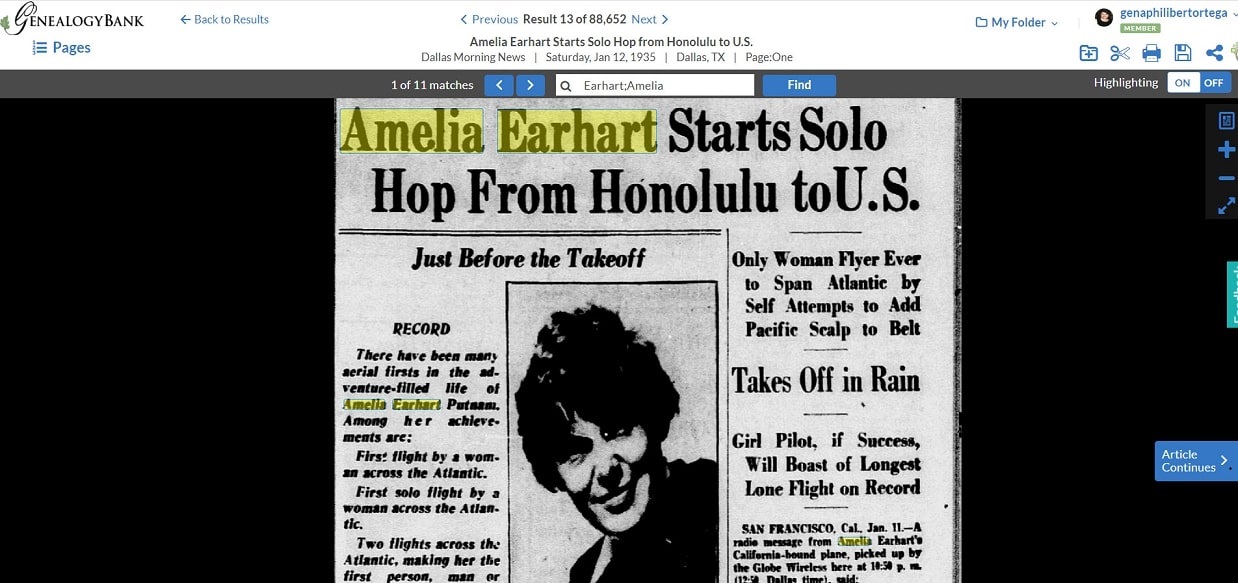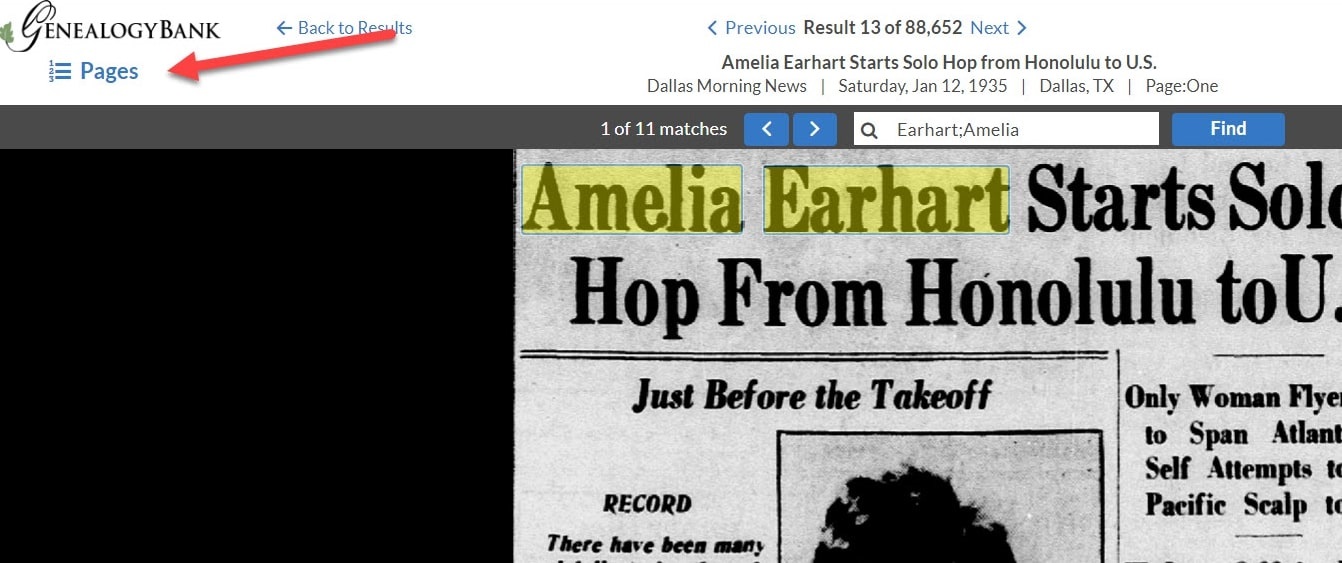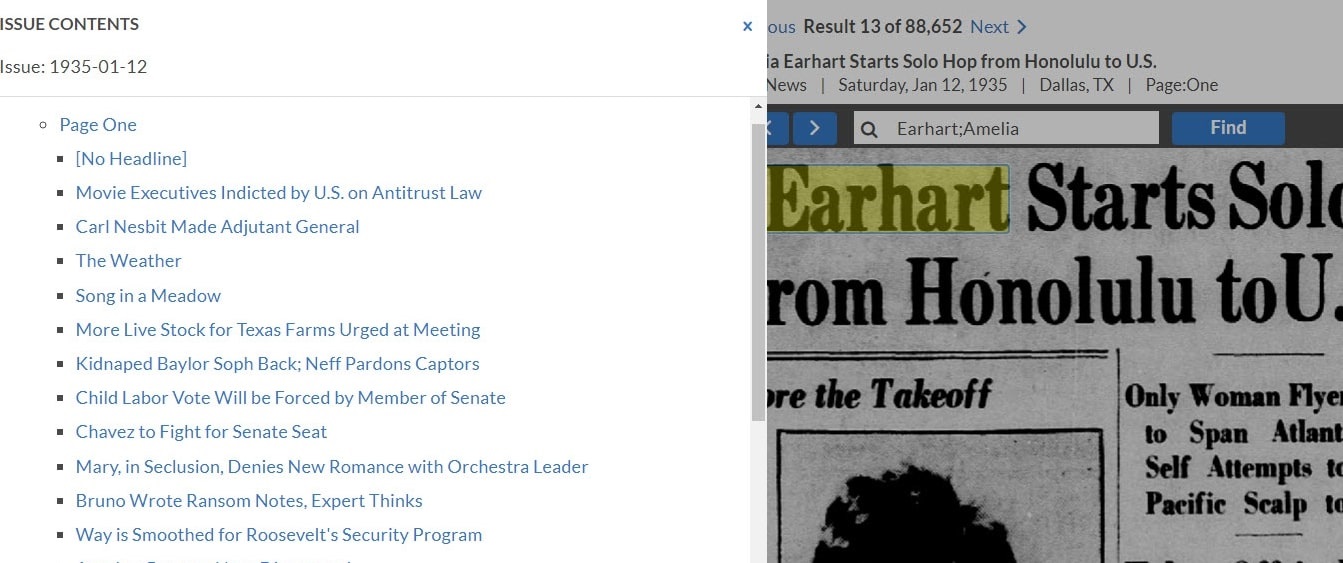Introduction: In this article, Gena Philibert-Ortega gives tips for searching an entire newspaper to find articles about your ancestor you might otherwise have missed. Gena is a genealogist and author of the book “From the Family Kitchen.”
If you’re like me, you spend a lot of time searching old newspapers for information and stories about your ancestors. Searching historical newspapers adds depth to our family history. Learning to conduct better searches ensures that you find what you need. Searching is only one tool that can help you find information. A lesser-used tool is browsing. Have you browsed the newspapers you search?
Browse vs. Search
Before we explore browsing, let’s discuss the difference between searching and browsing. When I consider these two research tools, I think of a library. I might go to the library’s website and search for a keyword in the card catalog. That’s one way to find a book. Another way is to go to the library and skim the bookshelf for a subject or author of interest. I might choose a bookshelf that has other books I wasn’t expecting but I’m interested in. That’s browsing.
So, if I’m searching an online collection of newspapers, I am entering a name and a place (and other terms) into the search engine. Then I wait for results that match those keywords. If I want to browse the newspaper, I choose a specific newspaper and read it page-by-page to carefully consider the columns and articles.
So why would I want to browse the newspaper? Wouldn’t searching be more beneficial? Maybe. Obviously searching is essential. It helps us find our ancestor’s name (or another keyword) in newspaper articles. However, there is also a benefit to browsing the entire newspaper, such as:
- Understanding what articles appear (or not) in a specific newspaper
- Learning how the newspaper is organized
- Noticing what information genealogically relevant articles (like obituaries) include – and don’t include
- Noting any unusual articles that appear
- Getting ideas for possible articles or columns where your ancestor’s name could appear
- Reconstructing your ancestor’s community
- Conducting FAN Club research (Friends, Associates, and Neighbors)
- Finding information that could have been missed by OCR technology (such as letters that look like a different letter, words that are adjacent in different columns, ink smudges, etc.)
Take time to conduct in-depth research. Search historical newspapers – but also add browsing to your research plan.
How to Browse GenealogyBank’s Historical Newspapers
Let’s take a look at how to browse your ancestor’s hometown newspaper. Let’s say you’ve conducted a search for Amelia Earhart and you are looking at an article about her in the newspaper.

Notice the top left of the website.
There are three horizontal lines next to the word “Pages.” Click on those lines to open up the “table of contents” for the entire newspaper, page by page.
This is where you will find links to newspaper pages and articles within each page that appear in that newspaper. Click on a page number to see the entire page’s contents. You would continue clicking on page numbers to browse the entire newspaper.
Another Genealogy Tip: Note that at the bottom of the Pages menu, you can also find the source citation for the newspaper article you are viewing. Copy this and paste it to your research log to keep track of what you have found.
Browse and Search for Better Results
Browsing is another way to research GenealogyBank’s Historical Newspaper Archives. Don’t limit your research to just searching; make sure to browse the entire paper to learn more about your ancestor’s hometown newspaper and discover what your searches may possibly be missing.



Thank you so much, Gena. I never knew that about browsing via the pages icon on the left. After 15+ years as a subscriber, I continue to learn new things.
Thank you, Diane, for commenting! I think so many of us jump into using a website without learning all it has to offer. I’m glad you now have another tool to help your searches.–Gena